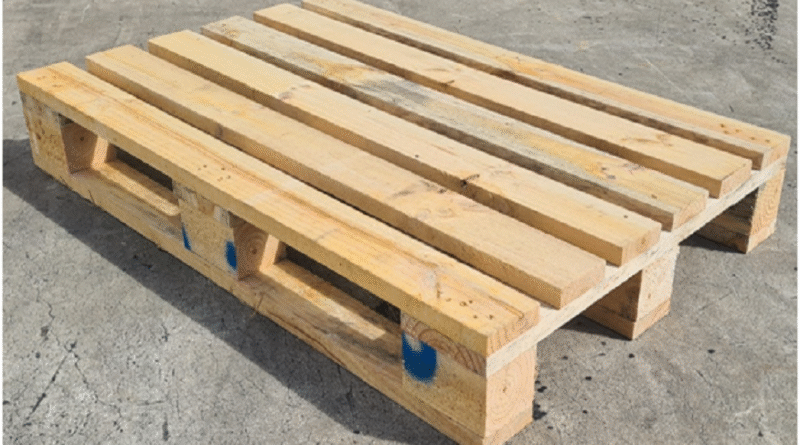Common Myths About Wooden Pallets Debunked
At a Glance:
- Wooden pallets are often misunderstood, but they remain one of the most sustainable and recyclable options in modern logistics.
- Well-maintained timber pallets are strong, durable, and capable of handling heavy loads efficiently.
- Fire risks linked to wooden pallets are largely preventable with proper storage and adherence to safety protocols.
- Heat-treated wooden pallets meet strict hygiene standards, making them safe for transporting food and pharmaceutical goods.
- While plastic pallets suit specific environments, wooden pallets offer greater versatility, lower costs, and a smaller carbon footprint.
Wooden pallets are the humble pillars of global logistics, quietly carrying the burden of modern trade. Yet, despite their ubiquity, they too often remain obscured by myths and misconceptions.
For instance, some believe all wooden pallets are the same. Others assume they’re weak, unsafe, or environmentally harmful. From the environment to fire safety and hygiene, these myths can skew decisions, disrupt supply chain efficiency, and incur unnecessary expenses. But, are these claims real or just a misconception?
This article debunks the most common myths about wooden pallets.
Myth 1: Wooden Pallets Are Bad for the Environment
Wooden pallets are often criticised for contributing to deforestation and landfill waste. The perception is that they have a high environmental cost compared to plastic or metal alternatives.
Debunked: Wooden pallets are frequently manufactured from sustainably sourced timber, making them one of the most eco-friendly materials in logistics. Wood is a renewable and biodegradable resource. Unlike many alternatives, wooden pallets can be repaired, reused, and eventually recycled into mulch or biofuel, extending their lifecycle and minimising waste.
In fact, some studies suggest that the production process of wooden pallets often leaves a smaller carbon footprint compared to plastic alternatives, which are fossil fuel-based and harder to recycle efficiently.
Myth 2: Wooden Pallets Are Weak and Break Easily
Some assume wooden pallets are structurally inferior and prone to damage under heavy loads or rough handling.
Debunked: When properly designed and maintained, timber pallets are incredibly robust. They are built to endure heavy weight and the mechanical rigours of modern transport systems. Standard-size pallets and custom-made pallets can be engineered to meet specific load-bearing requirements, making them highly adaptable.
In addition, routine inspection and minor repairs can dramatically extend a wooden pallet’s service life, offering both performance and cost-efficiency.
Myth 3: Wooden Pallets Are a Fire Hazard
Being made of wood, these pallets are believed to be a major fire risk, especially in warehouses and storage facilities.
Debunked: While it is true that wood is a combustible material, fire safety is more about proper handling and storage than material type. Storing wooden pallets in well-ventilated, designated areas and maintaining clear fire safety protocols significantly reduces risk.
It’s also worth noting that plastic pallets, often considered a safer alternative, can actually burn hotter, quicker and release noxious fumes when ignited.
Myth 4: Wooden Pallets Are Unhygienic and Unsafe for Shipping Food
It is a common belief that wooden pallets harbour bacteria, making them unsuitable for food or pharmaceutical transport.
Debunked: This myth is especially common in industries like food and pharmaceuticals, where hygiene is critical. However, wooden pallets used in these sectors are heat-treated pallets and comply with ISPM 15 and other international safety standards.
Contamination issues are not exclusive to wooden pallets. Plastic pallets, for example, can develop cracks over time, which may harbour bacteria or mould if not properly sanitised. In contrast, wooden pallets can be quickly repaired or replaced, reducing the risk of unnoticed damage.
In Australia, wooden pallets are widely used across the agriculture, fresh produce, and packaged goods industries with no compromise on food safety.
Myth 5: Plastic Pallets Are Always Better
Plastic pallets are often seen as a superior alternative due to their uniformity, moisture resistance, and perception of cleanliness.
Debunked: Plastic pallets have their place in closed-loop systems or highly sterile environments, but they are not a one-size-fits-all solution. They are often more expensive to produce and purchase, and their environmental impact over time can be significant.
However, wooden pallets, especially custom or Euro pallets, offer flexibility, recyclability, and lower upfront costs. This makes them a preference for many businesses aiming for both performance and sustainability.
Believing in these misconceptions can lead to suboptimal decisions. By understanding the truth, businesses can make smarter, fact-based decisions for their operations.This article has shown that wooden pallets, including standard pallets, export pallets, and racking pallets, continue to be a practical, sustainable, and high-performing solution for modern logistics.
So, now, are you ready to upgrade your logistics with wooden pallets? Find the perfect custom pallets in Melbourne that are built to support your unique business demands. Contact the Waterstone Pallets team for a quote today.

